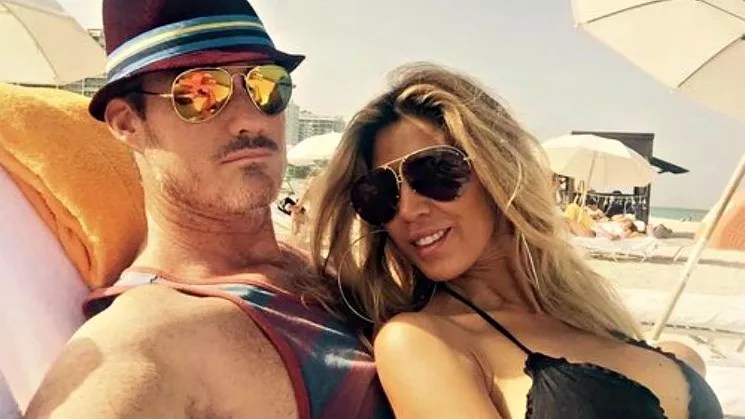
Harmony & Green

Audio By Carbonatix
On February 14, former marijuana entrepreneur Scott Pack was found guilty on six charges in what’s been described as one of the largest pot fraud cases in Colorado history.
Westword has obtained selected transcripts from the trial, which took place over a period of more than two weeks in Arapahoe District Court. Among other things, they document testimony from Michael Stonehouse, who pleaded guilty for his role in the Pack-related drug ring; authorities found and seized more than 2,500 pounds of marijuana, worth an estimated $5 million, from his Elizabeth residence back in 2016. Stonehouse said Pack dreamed of being the Scarface of weed.
Also weighing in are law enforcement sources, who tie Pack’s actions to his father, Michael Pack, a wealthy San Diego real estate developer and a prime target of a still-pending civil suit initially filed in 2017.
Meanwhile, attorney David Olsky of Fortis Law Partners, LLC, who’s teaming with colleague Henry Baskerville to represent plaintiffs Pierre and Christophe Raygot in the civil complaint, is worried that Pack won’t return for a hearing on April 6, when he could be sentenced to as many as 32 years behind bars.
“We are deeply concerned that over the DA’s strong objection, Scott Pack was allowed to go free before sentencing in April,” notes Olsky, corresponding by email. “He has a yacht, access to millions of dollars, ties to Mexico through his wife, and little reason to come back to Colorado.”
The Raygots are both foreign nationals (Pierre is from Thailand, Christophe is based in Portugal), and in a previous interview with Westword, Baskerville pointed out that the main events covered in the amended suit occurred in 2015, when non-Colorado residents weren’t allowed to put money directly into a cannabis concern here. The law was changed the following year.
The suit maintains that Scott and Michael Pack formed two enterprises named SMP Properties LLC – one in Colorado, the other in Nevada – that were intertwined with Harmony & Green, the company at the center of both the criminal and civil cases. According to Baskerville, the Colorado branch of SMP Properties “owned a facility in which a grow was operating in Denver and a facility in which a grow was operating in Colorado Springs. There were a number of times Scott represented over Facebook Messenger that they were obtaining new grows and looking for money to purchase a new facility – but it appears that those representations were not true.”

The caption on this photo read: “Scott Pack and Jannette Pack on the roof of the luxury apartment they rented for themselves that was paid for by the company.”
Harmony & Green
In addition, Baskerville said, “it appears that the money was funneled directly into the marijuana business, and we believe it was used to repay other investors or funneled into the Packs’ pockets.”
During the trial, DEA agent Michael Marshall specifically referenced Scott and Michael Pack, as well as alleged co-conspirator Rudy Saenz, who’s scheduled for a status conference tomorrow, February 21, in his own case, as financiers of the Elizabeth grow. Ray Padilla, a drug task-force officer, also said that father and son were both identified to him as investors.
A third witness, Skytyler Chavez, testified that Scott was “always with his dad” when he met with him. He also stated that he never saw Scott Pack growing marijuana because “he was there for a different reason. He was there to pass out money. He was there to be a gangster…to try to be a gangster.”
“To be an investor?” Pack’s attorney asked.
“One in the same if you are dealing with that kind of process,” Chavez replied. “Trying to be. Didn’t say you were. You acted like it, that’s for sure.”
During his time on the stand, Stonehouse said, “Scott came out from San Diego wanting to be the Scarface of the marijuana world. He had crews that he wanted to bring out, he had the best growers in the world, and he was going to make this ten times better than I can make it, blah-blah-blah-blah.”
Pack’s trial began on January 27, and on the morning of February 14, he was convicted of six felonies: “two counts under the Colorado Organized Crime Control Act (COCCA) – pattern of racketeering and conspiracy; a first-class drug felony; conspiracy to cultivate marijuana; and two counts of securities fraud,” according to the 18th Judicial District DA’s office.
On behalf of the Raygots, Olsky expresses gratitude for the outcome: “My clients thank the DA for bringing the criminal case of Scott Pack and the jury for coming to the right verdict. In that respect, justice has been served.” However, he adds, “justice will mean little unless he actually serves time in prison.”
A knowledgeable source tells Westword that Pack’s bond is $500,000, an amount much lower than the sum needed to make his victims whole; he’ll also need to cover court costs and pay other penalties that could be imposed at sentencing. Moreover, Pack allegedly violated the terms of his bond on previous occasions, once leaving the state without permission and later approaching Pierre Raygot at Burning Man, the Nevada festival where the two originally met in 2010.
A choice to rabbit could lead to a very interesting chapter in what’s already a fascinating story.
Click to read Pierre Raygot and Christophe Raygot v. Scott Pack, et al.